【广东学导练】2015-2016学年英语牛津深圳版八年级下册课件Unit 3 Traditional skills(共26张PPT)
文档属性
| 名称 | 【广东学导练】2015-2016学年英语牛津深圳版八年级下册课件Unit 3 Traditional skills(共26张PPT) | 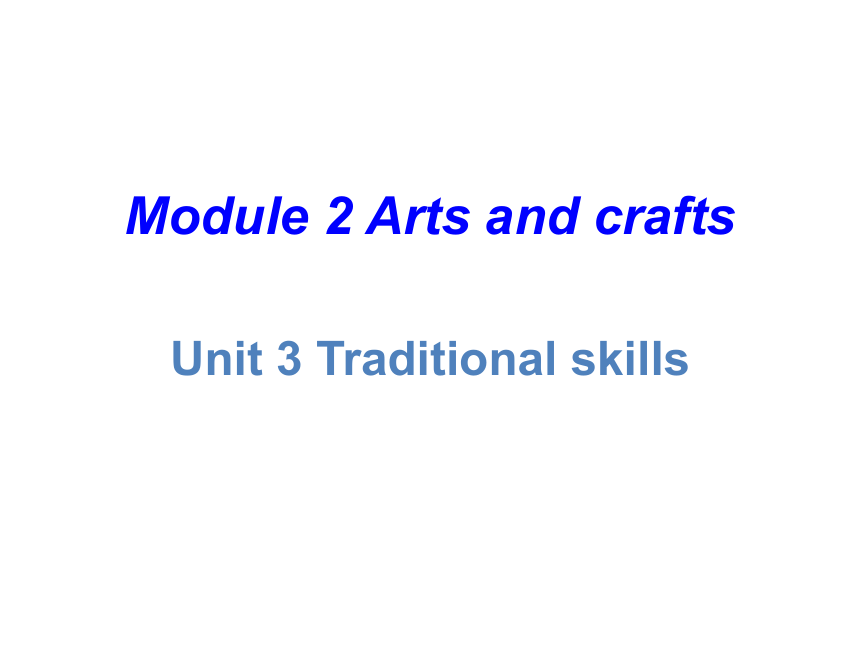 | |
| 格式 | zip | ||
| 文件大小 | 84.4KB | ||
| 资源类型 | 教案 | ||
| 版本资源 | 牛津深圳版 | ||
| 科目 | 英语 | ||
| 更新时间 | 2016-07-05 19:59:24 | ||
图片预览

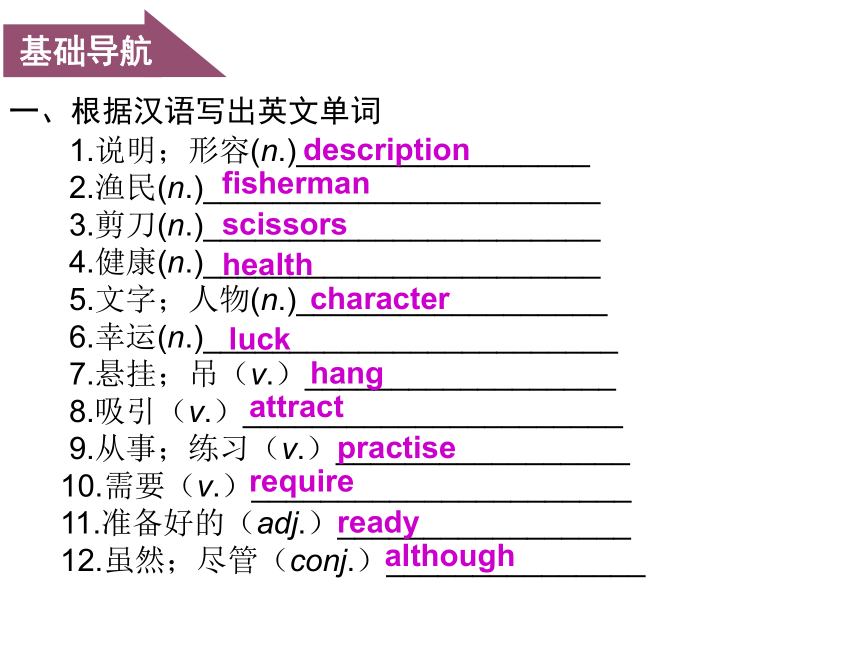
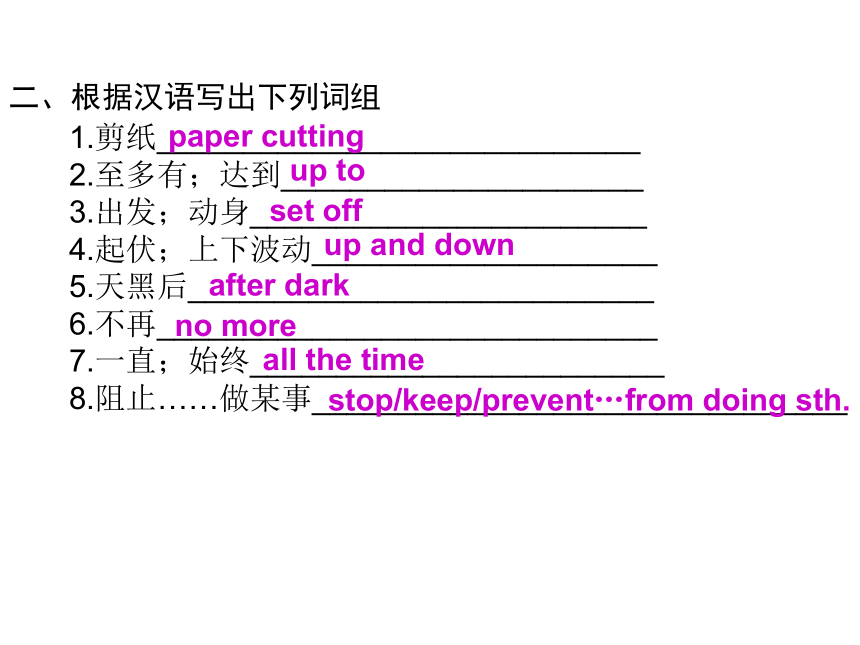
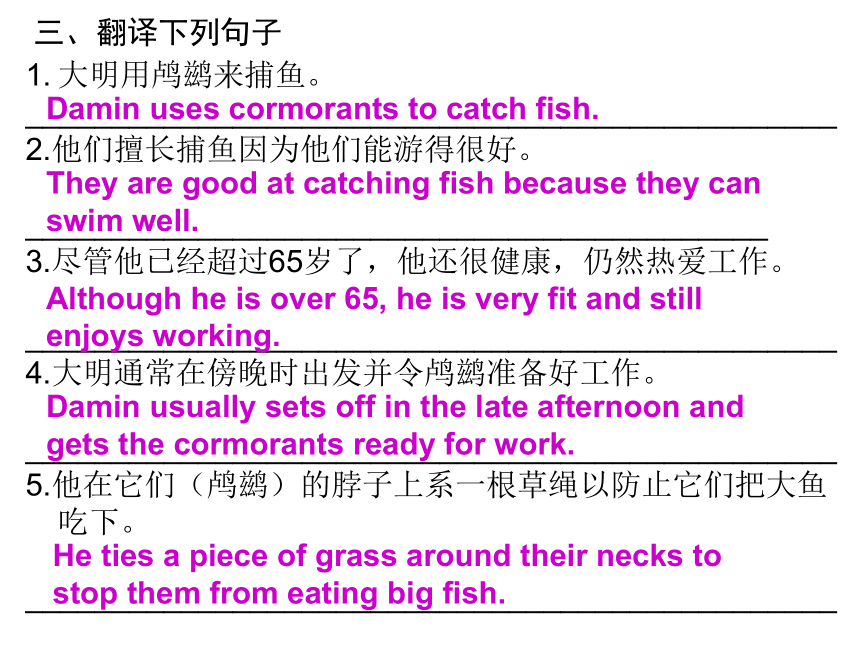
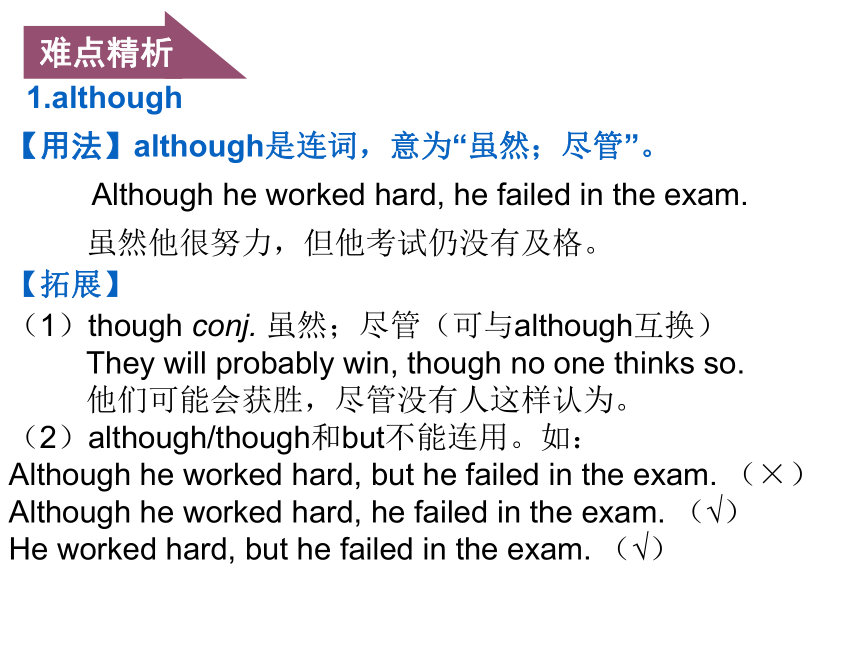
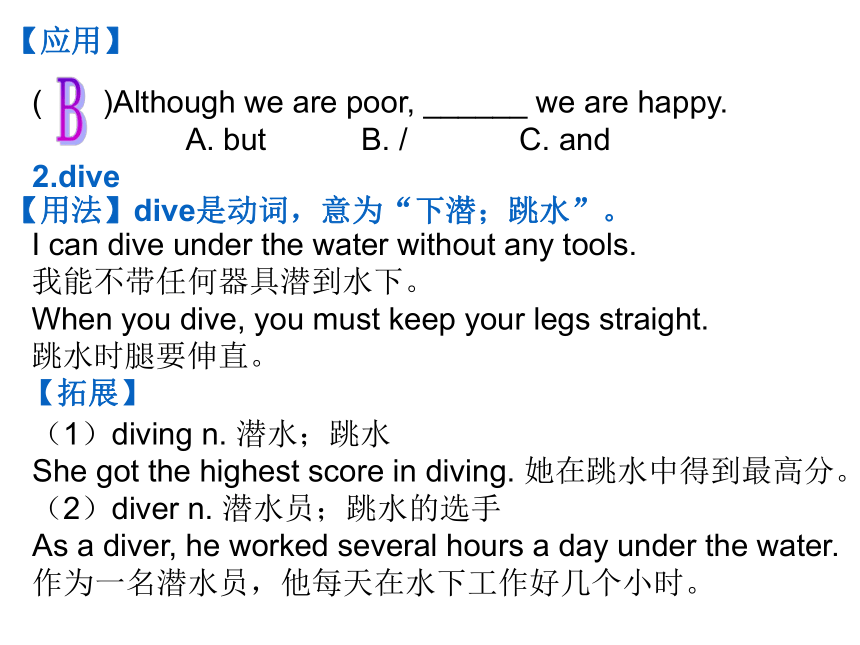
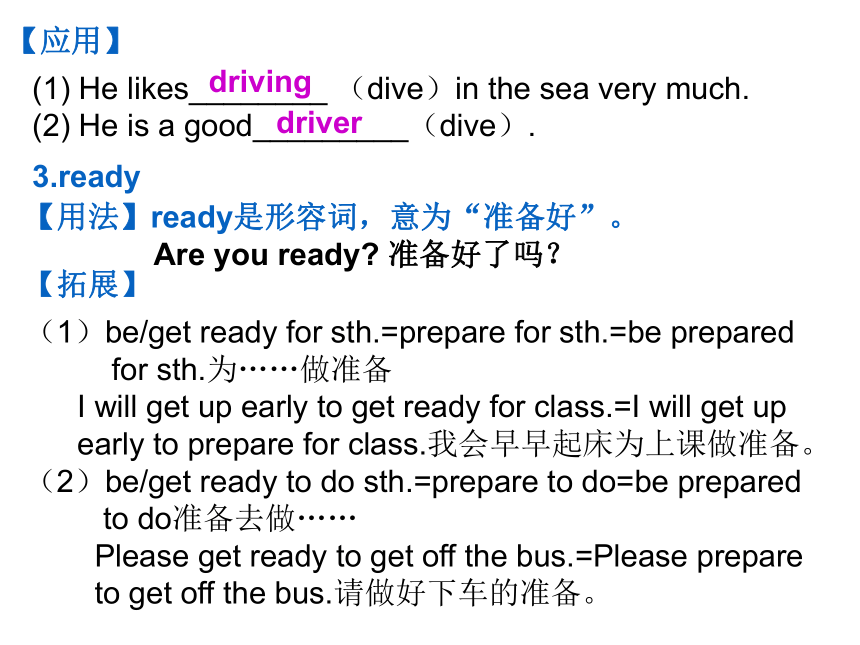
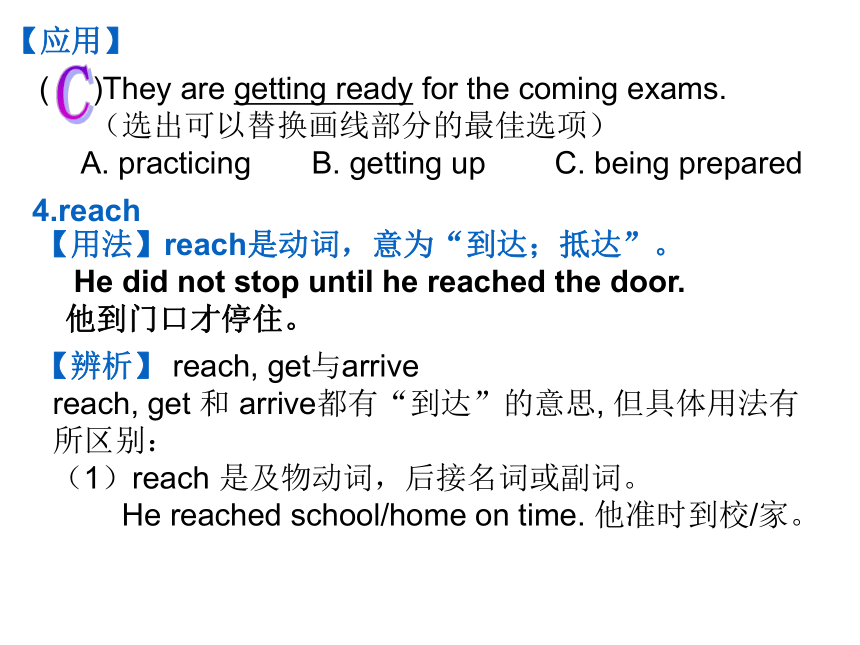
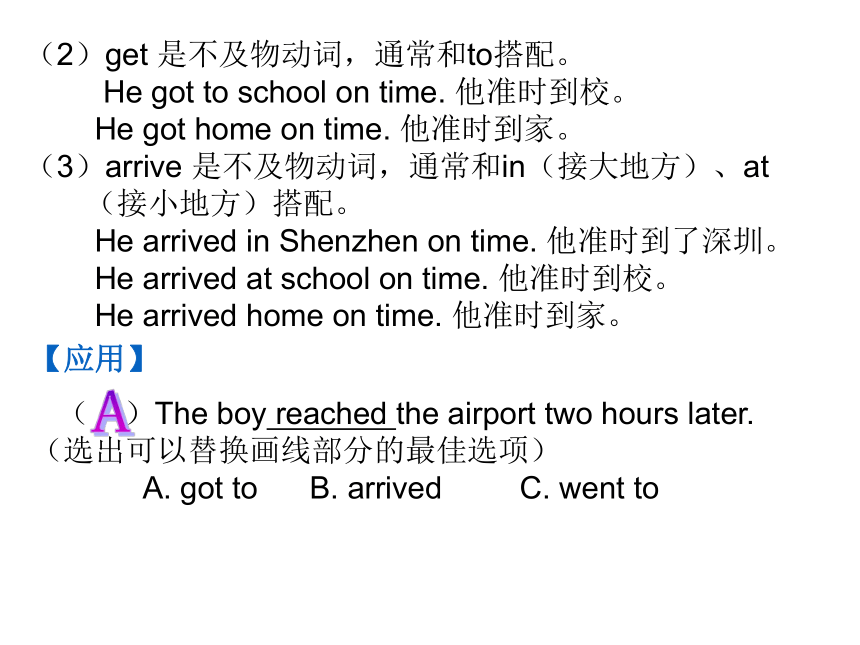
文档简介
课件26张PPT。Unit 3 Traditional skills
Module 2 Arts and crafts
基础导航一、根据汉语写出英文单词
1.说明;形容(n.)_________________
2.渔民(n.)_______________________
3.剪刀(n.)_______________________
4.健康(n.)_______________________
5.文字;人物(n.)__________________
6.幸运(n.)________________________
7.悬挂;吊(v.)__________________
8.吸引(v.)______________________
9.从事;练习(v.)_________________
10.需要(v.)______________________
11.准备好的(adj.)_________________
12.虽然;尽管(conj.)_______________
descriptionfishermanhealthscissorscharacterluckhangattractpractiserequirereadyalthough二、根据汉语写出下列词组
1.剪纸____________________________
2.至多有;达到_____________________
3.出发;动身_______________________
4.起伏;上下波动____________________
5.天黑后___________________________
6.不再_____________________________
7.一直;始终________________________
8.阻止……做某事_______________________________ paper cuttingup toset offup and downafter darkno moreall the timestop/keep/prevent…from doing sth.三、翻译下列句子大明用鸬鹚来捕鱼。
_______________________________________________
2.他们擅长捕鱼因为他们能游得很好。
___________________________________________
3.尽管他已经超过65岁了,他还很健康,仍然热爱工作。
_______________________________________________
4.大明通常在傍晚时出发并令鸬鹚准备好工作。
_______________________________________________
5.他在它们(鸬鹚)的脖子上系一根草绳以防止它们把大鱼吃下。
_______________________________________________
Damin uses cormorants to catch fish.They are good at catching fish because they can swim well.Although he is over 65, he is very fit and still enjoys working.Damin usually sets off in the late afternoon and gets the cormorants ready for work.He ties a piece of grass around their necks to stop them from eating big fish.难点精析 1.although
【用法】although是连词,意为“虽然;尽管”。
Although he worked hard, he failed in the exam.
虽然他很努力,但他考试仍没有及格。
【拓展】(1)though conj. 虽然;尽管(可与although互换)
They will probably win, though no one thinks so.
他们可能会获胜,尽管没有人这样认为。
(2)although/though和but不能连用。如:
Although he worked hard, but he failed in the exam. (×)
Although he worked hard, he failed in the exam. (√)
He worked hard, but he failed in the exam. (√)
【应用】( )Although we are poor, ______ we are happy.
A. but B. / C. andB2.dive【用法】dive是动词,意为“下潜;跳水”。 I can dive under the water without any tools.
我能不带任何器具潜到水下。
When you dive, you must keep your legs straight.
跳水时腿要伸直。
【拓展】(1)diving n. 潜水;跳水
She got the highest score in diving. 她在跳水中得到最高分。
(2)diver n. 潜水员;跳水的选手
As a diver, he worked several hours a day under the water. 作为一名潜水员,他每天在水下工作好几个小时。
【应用】(1) He likes________ (dive)in the sea very much.
(2) He is a good_________(dive).
drivingdriver3.ready【用法】ready是形容词,意为“准备好”。
Are you ready? 准备好了吗?【拓展】(1)be/get ready for sth.=prepare for sth.=be prepared
for sth.为……做准备
I will get up early to get ready for class.=I will get up
early to prepare for class.我会早早起床为上课做准备。
(2)be/get ready to do sth.=prepare to do=be prepared
to do准备去做……
Please get ready to get off the bus.=Please prepare
to get off the bus.请做好下车的准备。【应用】( )They are getting ready for the coming exams.
(选出可以替换画线部分的最佳选项)
A. practicing B. getting up C. being preparedC4.reach【用法】reach是动词,意为“到达;抵达”。
He did not stop until he reached the door.
他到门口才停住。【辨析】 reach, get与arrive
reach, get 和 arrive都有“到达”的意思, 但具体用法有所区别:
(1)reach 是及物动词,后接名词或副词。
He reached school/home on time. 他准时到校/家。(2)get 是不及物动词,通常和to搭配。
He got to school on time. 他准时到校。
He got home on time. 他准时到家。
(3)arrive 是不及物动词,通常和in(接大地方)、at
(接小地方)搭配。
He arrived in Shenzhen on time. 他准时到了深圳。
He arrived at school on time. 他准时到校。
He arrived home on time. 他准时到家。【应用】 ( )The boy reached the airport two hours later.
(选出可以替换画线部分的最佳选项)
A. got to B. arrived C. went toA5.attract【用法】attract是动词,意为“吸引;使喜爱”。Who do you want to attract? 你想要吸引谁?
【拓展】(1)attractive adj. 吸引人的
She’s a very attractive woman.
她是一个非常有吸引力的女人。
(2)attraction n. 吸引;吸引人的事物
Do you feel any attraction for this book?
你觉得这书有什么吸引力吗?
【应用】(1)The story is very________(attract).
(2)He visited many _________(attract)in Australia. attractiveattractions6.post【用法】post是名词,意为“柱;杆;桩”;也是动词,意为“邮递”。The light is fixed to a post. 那盏灯固定在一根柱子上。
Last year, he posted the documents to me. 去年,他把这些文件寄给了我。【拓展】(1)poster n. 海报;广告
My favourite poster is the one I made for my class.
我最喜欢的海报是我为班级制作的那张。
(2)postman n. 邮递员
He works as a postman. 他是一名邮递员。【应用】We made many________(post)for the English Week.
posters7.require【用法】require是动词,意为“需要;依靠”。This does require some time and patience. 这确实需要一些时间和耐心。【拓展】require的近义词为need。If you require further information, you can ask him. 如果你需要进一步的信息,你可以问他。
【应用】( )Nothing is required in this way. (选出可以替换画
线部分的最佳选项)
A. had B. needed C. usedB8.health【用法】health是名词,意为“健康”。
It’s bad for your health. 这对你的健康不利。【拓展】(1)healthy adj. 健康的
We must eat healthy food. 我们必须吃健康的食品。
(2)unhealthy adj. 不健康的
He had an unhealthy diet and he did no exercise.
他有不健康的饮食习惯并且他不锻炼。
(3)healthily adv. 健康地
What I really want is to live healthily.
我真正想要的是健康地活着。【应用】(1)He does exercise to keep________ (health).
(2)He lives_________ (health) and happily in the
countryside. healthyhealthily9.luck【用法】luck是名词,意为“幸运;运气”。
Good luck to you. 祝你好运。【拓展】(1)lucky adj. 幸运的
Some people seem to be always lucky. 有些人似
乎从来都是幸运的。
(2)luckily adv. 幸运地
Luckily I was at home when he called.
他打电话给我时,幸好我在家。
(3)unlucky adj. 不幸的
You were unlucky to get that horrible illness.
你得了那种可怕的病真是不幸。
(4)unluckily adv. 不幸地
Unluckily, she was badly hurt in a contest.
不幸的是,她在一次比赛中受了重伤。
【应用】(1)He is a ______(luck)dog.
(2)_________(luck), he didn’t pass the exam. luckyUnluckily10.simple【用法】simple是形容词,意为“简单的”。I’m afraid things are not so simple.
事情恐怕不这么简单。【拓展】(1)simple的近义词为easy。
This job is so simple.=This job is so easy. 这工作很简单。
(2)simple的反义词有 difficult, hard。
Some puzzles look difficult but are actually quite simple.
有些谜题看似很难,但实际上相当容易解开。
【应用】( )The question is so simple that he can answer it
quickly. (选出可以替换画线部分的最佳选项)
A. difficult B. hard C. easyC11.no more【用法】no more意为“不再;再也不”。【拓展】There are no more dinosaurs on the Earth.
=There are not dinosaurs on the Earth any more.
=There are no longer dinosaurs on the Earth.
=There are not dinosaurs on the Earth any longer.
地球上不再有恐龙了。【应用】( )There are no more books here. (选出可以替换
画线部分的最佳选项)
A. no many B. no some C. no longer
C语法梳理语法精讲被动语态(一)主动语态能说明动作的发出者,但被动语态经常没有告诉我们动作的发出者。
Damin uses cormorants to catch fish. 大明用鸬鹚来捕鱼。
No nets are required for this type of fishing. 这种捕鱼方式是不需要网的。
2. 被动语态的构成:be+done(过去分词), 否定形式为be+not+done(过去分词)。被动语态要说明动作的发出者就加上by+sb.。 He is taken into the room. 他被带进房间里。
He is not taken into the room. 他没被带进房间里。
He is taken into the room by Tom. 他被汤姆带进房间里。
(1)一般现在时的被动语态: is/am/are(not)+done。
I am(not)taken out. 我(没)被带出去。
We/You/They are(not)taken out. 我们/你们/他们
(没)被带出去。
He/She is(not)taken out. 他/她(没)被带出去。
(2)一般过去时的被动语态: was/were(not)+done。
I was(not)taken out. 我(没)被带出去。
We/You/They were(not)taken out. 我们/你们/他们
(没)被带出去。
He/She was(not)taken out. 他/她(没)被带出去。(3)一般将来时的被动语态: will(not)be+done。
I will(not)be taken out. 我将(没)被带出去。
We/You/They will(not)be taken out.
我们/你们/他们将(没)被带出去。
He/She will(not)be taken out. 他/她将(没)被带出去。
3.被动语态的一般疑问句。
Is he taken out?他被带出去了吗?(用be的一般现在
时提问)
Was he taken out?他被带出去了吗?(用be的一般过
去时提问)
Will he be taken out?他将被带出去吗?(用will提问)
直击中考( )1. The mobile phone has influenced people’s life a lot
since it_______ . (2014陕西)
A. invents B. invented
C. is invented D. was invented
( )2. The sports meeting ________ next month. (2013益阳)
A. will hold B. is going to hold C. will be held
( )3. Han Han’s books are popular. They______ by many
teenagers. (2013南宁)
A. is read B. was read
C. are read D. were read
DCC写作乐园话题三 描述一个(有传统剪纸技艺的)人 【常用词组】paper cutting剪纸
over 60 years六十多岁
be good at擅长
4.use...to do用……去做
5.turn into变成
6.begin to learn开始学
7.be required被需要
8.draw the patterns画好图案
9.cut into剪成
10.unfold the paper展开纸片
【精彩句型】
When he was 7 years old, he began to learn paper
cutting. 当他七岁时,他开始学剪纸。
2.He is good at paper cutting. 他擅长剪纸。
3.Mr Li uses his hands to turn the paper into beautiful
shapes. 李先生用他的手把纸变成漂亮的形状。
4.Only some simple tools are required for paper cutting.
剪纸只需要一些简单的工具。
5.First, he draws the patterns on the paper. 首先,他在
纸上画好图案。
6.I hope that one day I can learn paper cutting. 我希望有
一天我能学习剪纸。【短文写作】
根据下面的表格信息写一篇关于一位有传统剪纸技艺的人的短文。要求70-80词,可适当发挥。________________________________________________________________________________________________________________________________________________________________________________【范文赏析】
Mr Li is over 60 years old. When he was 7 years old, he began to learn paper cutting. So he is good at it.
Mr Li uses his hands to turn the paper into beautiful shapes. Only some simples tools, such as scissors,pens and colour paper, are required for paper cutting. First, he draws the patterns on the paper. Second, he cuts the paper into different shapes. Then, he unfolds the paper and we can see the beautiful paper cutting.
I love Mr Li’s paper cutting, because they are very beautiful. I hope that one day I can learn paper cutting.
谢谢欣赏!
1.说明;形容(n.)_________________
2.渔民(n.)_______________________
3.剪刀(n.)_______________________
4.健康(n.)_______________________
5.文字;人物(n.)__________________
6.幸运(n.)________________________
7.悬挂;吊(v.)__________________
8.吸引(v.)______________________
9.从事;练习(v.)_________________
10.需要(v.)______________________
11.准备好的(adj.)_________________
12.虽然;尽管(conj.)_______________
descriptionfishermanhealthscissorscharacterluckhangattractpractiserequirereadyalthough二、根据汉语写出下列词组
1.剪纸____________________________
2.至多有;达到_____________________
3.出发;动身_______________________
4.起伏;上下波动____________________
5.天黑后___________________________
6.不再_____________________________
7.一直;始终________________________
8.阻止……做某事_______________________________ paper cuttingup toset offup and downafter darkno moreall the timestop/keep/prevent…from doing sth.三、翻译下列句子大明用鸬鹚来捕鱼。
_______________________________________________
2.他们擅长捕鱼因为他们能游得很好。
___________________________________________
3.尽管他已经超过65岁了,他还很健康,仍然热爱工作。
_______________________________________________
4.大明通常在傍晚时出发并令鸬鹚准备好工作。
_______________________________________________
5.他在它们(鸬鹚)的脖子上系一根草绳以防止它们把大鱼吃下。
_______________________________________________
Damin uses cormorants to catch fish.They are good at catching fish because they can swim well.Although he is over 65, he is very fit and still enjoys working.Damin usually sets off in the late afternoon and gets the cormorants ready for work.He ties a piece of grass around their necks to stop them from eating big fish.难点精析 1.although
【用法】although是连词,意为“虽然;尽管”。
Although he worked hard, he failed in the exam.
虽然他很努力,但他考试仍没有及格。
【拓展】(1)though conj. 虽然;尽管(可与although互换)
They will probably win, though no one thinks so.
他们可能会获胜,尽管没有人这样认为。
(2)although/though和but不能连用。如:
Although he worked hard, but he failed in the exam. (×)
Although he worked hard, he failed in the exam. (√)
He worked hard, but he failed in the exam. (√)
【应用】( )Although we are poor, ______ we are happy.
A. but B. / C. andB2.dive【用法】dive是动词,意为“下潜;跳水”。 I can dive under the water without any tools.
我能不带任何器具潜到水下。
When you dive, you must keep your legs straight.
跳水时腿要伸直。
【拓展】(1)diving n. 潜水;跳水
She got the highest score in diving. 她在跳水中得到最高分。
(2)diver n. 潜水员;跳水的选手
As a diver, he worked several hours a day under the water. 作为一名潜水员,他每天在水下工作好几个小时。
【应用】(1) He likes________ (dive)in the sea very much.
(2) He is a good_________(dive).
drivingdriver3.ready【用法】ready是形容词,意为“准备好”。
Are you ready? 准备好了吗?【拓展】(1)be/get ready for sth.=prepare for sth.=be prepared
for sth.为……做准备
I will get up early to get ready for class.=I will get up
early to prepare for class.我会早早起床为上课做准备。
(2)be/get ready to do sth.=prepare to do=be prepared
to do准备去做……
Please get ready to get off the bus.=Please prepare
to get off the bus.请做好下车的准备。【应用】( )They are getting ready for the coming exams.
(选出可以替换画线部分的最佳选项)
A. practicing B. getting up C. being preparedC4.reach【用法】reach是动词,意为“到达;抵达”。
He did not stop until he reached the door.
他到门口才停住。【辨析】 reach, get与arrive
reach, get 和 arrive都有“到达”的意思, 但具体用法有所区别:
(1)reach 是及物动词,后接名词或副词。
He reached school/home on time. 他准时到校/家。(2)get 是不及物动词,通常和to搭配。
He got to school on time. 他准时到校。
He got home on time. 他准时到家。
(3)arrive 是不及物动词,通常和in(接大地方)、at
(接小地方)搭配。
He arrived in Shenzhen on time. 他准时到了深圳。
He arrived at school on time. 他准时到校。
He arrived home on time. 他准时到家。【应用】 ( )The boy reached the airport two hours later.
(选出可以替换画线部分的最佳选项)
A. got to B. arrived C. went toA5.attract【用法】attract是动词,意为“吸引;使喜爱”。Who do you want to attract? 你想要吸引谁?
【拓展】(1)attractive adj. 吸引人的
She’s a very attractive woman.
她是一个非常有吸引力的女人。
(2)attraction n. 吸引;吸引人的事物
Do you feel any attraction for this book?
你觉得这书有什么吸引力吗?
【应用】(1)The story is very________(attract).
(2)He visited many _________(attract)in Australia. attractiveattractions6.post【用法】post是名词,意为“柱;杆;桩”;也是动词,意为“邮递”。The light is fixed to a post. 那盏灯固定在一根柱子上。
Last year, he posted the documents to me. 去年,他把这些文件寄给了我。【拓展】(1)poster n. 海报;广告
My favourite poster is the one I made for my class.
我最喜欢的海报是我为班级制作的那张。
(2)postman n. 邮递员
He works as a postman. 他是一名邮递员。【应用】We made many________(post)for the English Week.
posters7.require【用法】require是动词,意为“需要;依靠”。This does require some time and patience. 这确实需要一些时间和耐心。【拓展】require的近义词为need。If you require further information, you can ask him. 如果你需要进一步的信息,你可以问他。
【应用】( )Nothing is required in this way. (选出可以替换画
线部分的最佳选项)
A. had B. needed C. usedB8.health【用法】health是名词,意为“健康”。
It’s bad for your health. 这对你的健康不利。【拓展】(1)healthy adj. 健康的
We must eat healthy food. 我们必须吃健康的食品。
(2)unhealthy adj. 不健康的
He had an unhealthy diet and he did no exercise.
他有不健康的饮食习惯并且他不锻炼。
(3)healthily adv. 健康地
What I really want is to live healthily.
我真正想要的是健康地活着。【应用】(1)He does exercise to keep________ (health).
(2)He lives_________ (health) and happily in the
countryside. healthyhealthily9.luck【用法】luck是名词,意为“幸运;运气”。
Good luck to you. 祝你好运。【拓展】(1)lucky adj. 幸运的
Some people seem to be always lucky. 有些人似
乎从来都是幸运的。
(2)luckily adv. 幸运地
Luckily I was at home when he called.
他打电话给我时,幸好我在家。
(3)unlucky adj. 不幸的
You were unlucky to get that horrible illness.
你得了那种可怕的病真是不幸。
(4)unluckily adv. 不幸地
Unluckily, she was badly hurt in a contest.
不幸的是,她在一次比赛中受了重伤。
【应用】(1)He is a ______(luck)dog.
(2)_________(luck), he didn’t pass the exam. luckyUnluckily10.simple【用法】simple是形容词,意为“简单的”。I’m afraid things are not so simple.
事情恐怕不这么简单。【拓展】(1)simple的近义词为easy。
This job is so simple.=This job is so easy. 这工作很简单。
(2)simple的反义词有 difficult, hard。
Some puzzles look difficult but are actually quite simple.
有些谜题看似很难,但实际上相当容易解开。
【应用】( )The question is so simple that he can answer it
quickly. (选出可以替换画线部分的最佳选项)
A. difficult B. hard C. easyC11.no more【用法】no more意为“不再;再也不”。【拓展】There are no more dinosaurs on the Earth.
=There are not dinosaurs on the Earth any more.
=There are no longer dinosaurs on the Earth.
=There are not dinosaurs on the Earth any longer.
地球上不再有恐龙了。【应用】( )There are no more books here. (选出可以替换
画线部分的最佳选项)
A. no many B. no some C. no longer
C语法梳理语法精讲被动语态(一)主动语态能说明动作的发出者,但被动语态经常没有告诉我们动作的发出者。
Damin uses cormorants to catch fish. 大明用鸬鹚来捕鱼。
No nets are required for this type of fishing. 这种捕鱼方式是不需要网的。
2. 被动语态的构成:be+done(过去分词), 否定形式为be+not+done(过去分词)。被动语态要说明动作的发出者就加上by+sb.。 He is taken into the room. 他被带进房间里。
He is not taken into the room. 他没被带进房间里。
He is taken into the room by Tom. 他被汤姆带进房间里。
(1)一般现在时的被动语态: is/am/are(not)+done。
I am(not)taken out. 我(没)被带出去。
We/You/They are(not)taken out. 我们/你们/他们
(没)被带出去。
He/She is(not)taken out. 他/她(没)被带出去。
(2)一般过去时的被动语态: was/were(not)+done。
I was(not)taken out. 我(没)被带出去。
We/You/They were(not)taken out. 我们/你们/他们
(没)被带出去。
He/She was(not)taken out. 他/她(没)被带出去。(3)一般将来时的被动语态: will(not)be+done。
I will(not)be taken out. 我将(没)被带出去。
We/You/They will(not)be taken out.
我们/你们/他们将(没)被带出去。
He/She will(not)be taken out. 他/她将(没)被带出去。
3.被动语态的一般疑问句。
Is he taken out?他被带出去了吗?(用be的一般现在
时提问)
Was he taken out?他被带出去了吗?(用be的一般过
去时提问)
Will he be taken out?他将被带出去吗?(用will提问)
直击中考( )1. The mobile phone has influenced people’s life a lot
since it_______ . (2014陕西)
A. invents B. invented
C. is invented D. was invented
( )2. The sports meeting ________ next month. (2013益阳)
A. will hold B. is going to hold C. will be held
( )3. Han Han’s books are popular. They______ by many
teenagers. (2013南宁)
A. is read B. was read
C. are read D. were read
DCC写作乐园话题三 描述一个(有传统剪纸技艺的)人 【常用词组】paper cutting剪纸
over 60 years六十多岁
be good at擅长
4.use...to do用……去做
5.turn into变成
6.begin to learn开始学
7.be required被需要
8.draw the patterns画好图案
9.cut into剪成
10.unfold the paper展开纸片
【精彩句型】
When he was 7 years old, he began to learn paper
cutting. 当他七岁时,他开始学剪纸。
2.He is good at paper cutting. 他擅长剪纸。
3.Mr Li uses his hands to turn the paper into beautiful
shapes. 李先生用他的手把纸变成漂亮的形状。
4.Only some simple tools are required for paper cutting.
剪纸只需要一些简单的工具。
5.First, he draws the patterns on the paper. 首先,他在
纸上画好图案。
6.I hope that one day I can learn paper cutting. 我希望有
一天我能学习剪纸。【短文写作】
根据下面的表格信息写一篇关于一位有传统剪纸技艺的人的短文。要求70-80词,可适当发挥。________________________________________________________________________________________________________________________________________________________________________________【范文赏析】
Mr Li is over 60 years old. When he was 7 years old, he began to learn paper cutting. So he is good at it.
Mr Li uses his hands to turn the paper into beautiful shapes. Only some simples tools, such as scissors,pens and colour paper, are required for paper cutting. First, he draws the patterns on the paper. Second, he cuts the paper into different shapes. Then, he unfolds the paper and we can see the beautiful paper cutting.
I love Mr Li’s paper cutting, because they are very beautiful. I hope that one day I can learn paper cutting.
谢谢欣赏!
同课章节目录
